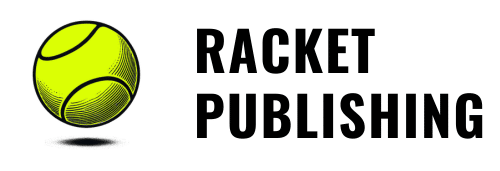Jump to ...
A few years ago, I befriended a successful senior executive at my gym. (Sweating together on a treadmill or Ultra Fit class makes for rapid bonding.) I’ll call the guy Dave here, but it’s a pseudonym.
Dave told me that he had considered writing a book at different points in his career, but he didn’t know where to start. What’s more, several ostensibly reputable publishers had recently contacted him about getting started. (In fact, they were hybrid outfits that would charge him upwards of six figures to write his book.) An aggressive rep at Publisher X told him that his rough title for a business book “would be a bestseller.”
In between sprints, Dave conveyed the crux of that conversation to me. After catching my breath, I told him to immediately run—and not just on his current treadmill.
The Promise
The rep’s suggestion was downright irresponsible.
It wasn’t the price tag that made me caution my new friend. In fact, hiring an experienced ghostwriter to pen a quality manuscript alone is an expensive endeavor. When you factor in different types of editing, interior and cover design, figure creation, indexing, and ebook conversion, $100,000 isn’t entirely unreasonable. Now include decent budgets for marketing, advertising, and public relations, and you may blow past that number. Plenty of successful authors have.
No, my issue stems from the rep’s suggestion that Publisher X would turn Dave’s book into a bestseller. Curious about how much Publisher X was stretching the truth, I visited its website, On its pricing page, I saw the following image:

Note the proviso at the end of the third bullet point: in a category.
The Reality
With 2.2 million books published every year, the odds that Dave’s book—or any other author’s, for that matter—would become the next Atomic Habits are nearly zero. (Kind of like Bronny James surpassing his father in the pantheon of NBA greats. It could happen, but it won’t.)
Experienced authors, agents, and publishing professionals know that Publisher X will technically deliver on its promise. It is entirely possible—even probable—that Dave’s hypothetical text would rank as the number one bestseller in a subcategory.1
And there’s the rub. After all, some reports put the number of Amazon book subcategories at 16,000, and I’ve seen much higher estimates. Hell, if four people buy your book on its release date, you’ll probably own the top spot—if your subcategory is in Kindle eBooks > New Releases > Romance > Love Triangle. What about Photography Business & Careers or another niche? The New York Times and Wall Street Journal bestseller lists these are not.
Publisher X knows exactly what it’s doing here, and the suggestion that Dave’s book will become a true bestseller is misleading, irresponsible, and downright unethical. (As an aside, all else being equal, your book will sell much better if it ranks as the fifteenth in a popular, mainstream category such as business strategy compared to being first in an obscure subcategory.)
The 46 Non-Writing Hats Skilled Non-Fiction Ghostwriters Wear
What You Need to Know
There are plenty of legitimate reasons to pen a non-fiction text. Achieving true bestseller status is nearly impossible—and it shouldn’t be one of them. Don’t buy the claims of charlatans who pretend otherwise.



Good point. With enough money, anyone can buy their way to bestseller status—it is just sales, after all. Doesn’t mean the book will be well received or—and this is a very important point—actually held on to. Returns of “bestsellers” are an enormous expense, too.
Absolutely, Paul.